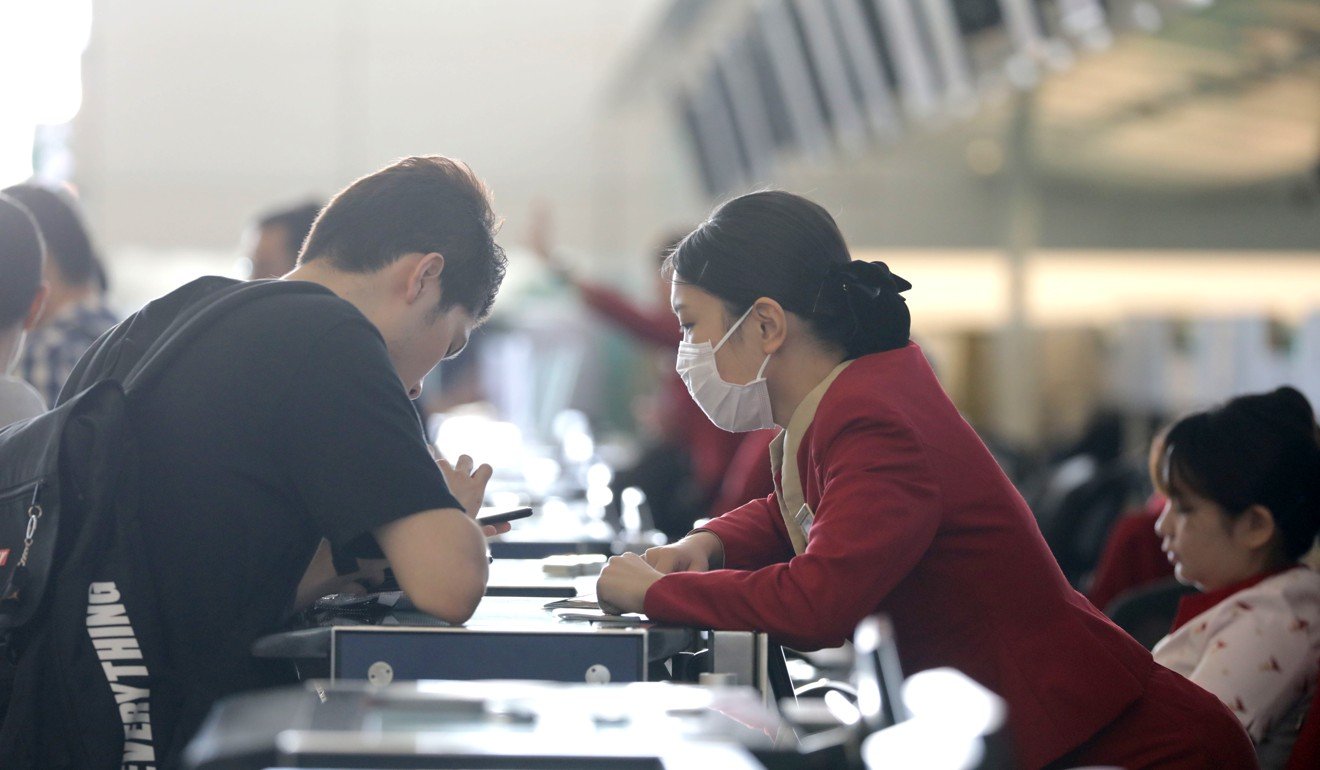
Hong Kong stocks sink to lowest level since January; Swire Pacific thuds to more than one year low
- The Hang Seng Index dropped to its lowest level since January on Monday, ending the day 0.44 per cent down at 25,824.72
- Swire Pacific drops 6.2 per cent, weighed by concerns over Cathay Pacific route access to mainland China
Hong Kong kicked off the week in a downbeat mood on Monday, as weeks of political protests in the city took a toll of markets, led by declines in major conglomerate Swire Pacific.
The Hang Seng Index closed at its lowest level since January, dropping 0.44 per cent to 25,824.72.
Swire Pacific, the parent company of carrier Cathay Pacific Airways, tumbled 6.2 per cent to close at HK$76.70, its lowest level since May 2018. Cathay shares slumped 4.9 per cent to close at HK$9.80, their lowest level in 10 years. The airline has come under pressure to crack down on employees after Chinese authorities said aircrew supporting the anti-government demonstrations would be barred from flights travelling to, from or through mainland China.
Markets live: Hang Seng close to year's low as Hong Kong airport disruptions enter second day
In a note to staff on Monday, Cathay chief executive Rupert Hogg said, “there will be disciplinary consequences for employees who support or participate in illegal protests” and these “may include termination of employment”.
The carrier is 45 per cent owned by Swire Pacific, and 22.7 per cent held by Air China, which fell by 1.7 per cent to HK$6.41 in Hong Kong.

Shortly after 4pm airport authorities cancelled all outbound flights from Hong Kong – one of the world’s busiest airports – after thousands of anti-government protesters occupied the airport terminal building, following weekend clashes with police.
On the mainland, markets began the week on a positive note, boosted by news China’s securities regulator and exchanges was doubling the number of stocks eligible for short selling and margin financing, from the current 950 to 1,600. The move could help boost equities, after Chinese markets have been particularly volatile in recent weeks over the escalating trade war.
The Shanghai Composite rose 1.5 per cent to 2,814.99, with all sub-indices ending in positive territory, while the CSI 300 gained 1.8 per cent to 3,699.11.
“Shanghai is doing quite well today,” said Gordon Tsui, managing director for Hantec Pacific. “They are relaxing the liquidity for financial brokerages, so banks will release more liquidity, and it is easier to trade.”
While sentiment is not great due to stalled trade talks between Beijing and Washington, traders took heart from the policy relaxation in the wake of a dismal week that saw the Shanghai benchmark battered for a 3.3 per cent loss, ending Friday at its lowest level since February, he said.
Brokerages rallied on the news. The mainland-listed shares of Citic Securities were up 2.7 per cent to 21.34 yuan, while Huatai Securities rose 1.9 per cent to 19.49 yuan and Guotai Junan Securities gained 2.2 per cent to 16.68 yuan.
Also boosting Chinese markets was Kweichow Moutai, the world’s most valuable distiller, which rose 5.9 per cent to 1,018.63 yuan, after an announcement that it would cap the amount of liquor it sells to affiliates this year. It said it would limit sales to parent China Kweichow Moutai Winery Group to 5.6 billion yuan, equal to 5 per cent to its value, according to a Shanghai stock exchange filing.
China’s biggest publicly traded brokerage, Citic Securities, raised its earnings per share projection for 2019 by 4.2 per cent to 35.10 yuan, and for 2020 by 1.7 per cent to 41 yuan.

